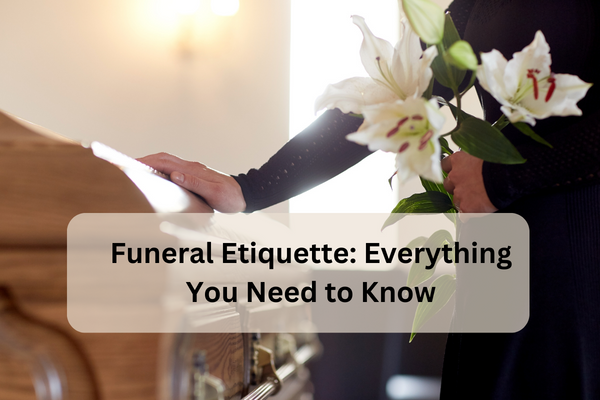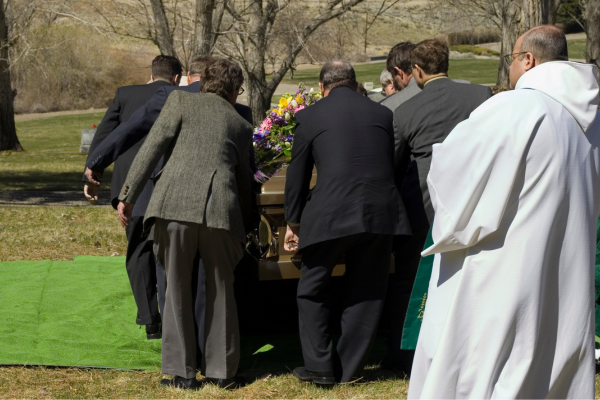Currently Empty: $0.00
Funeral Etiquette: Everything You Need to Know
 Losing a loved one is never easy, and attending a funeral can be a challenging and emotional experience. During this difficult time, it’s important to show respect and support to the grieving family and friends. Understanding funeral etiquette can help you navigate these sensitive situations with grace and compassion. In this article, we’ll cover everything you need to know about funeral etiquette.
Losing a loved one is never easy, and attending a funeral can be a challenging and emotional experience. During this difficult time, it’s important to show respect and support to the grieving family and friends. Understanding funeral etiquette can help you navigate these sensitive situations with grace and compassion. In this article, we’ll cover everything you need to know about funeral etiquette.
Dress Appropriately: When attending a funeral, it’s essential to dress modestly and respectfully. Wear dark and subdued colors like black, gray, or navy. Avoid bright and flashy clothing, as funerals are solemn events.
Arrive on Time: Punctuality is crucial. Arrive at the funeral service or memorial on time or a little early. Being late can be disruptive and disrespectful to the grieving family and other attendees.
Turn Off Your Phone: Make sure to turn off your phone or switch it to silent mode before entering the funeral venue. It’s essential to maintain a quiet and solemn atmosphere.
Offer Condolences: If you are close to the bereaved family, express your condolences in person or through a heartfelt card. Keep your words simple and genuine. For example, “I’m so sorry for your loss” or “My thoughts are with you during this difficult time.”
Respect the Family’s Wishes: Funerals can have different customs and traditions, so it’s important to respect the family’s wishes. Follow their guidance regarding the service, rituals, or any specific requests they may have.
Stay Quiet and Listen: During the service, maintain a respectful and quiet demeanor. Pay attention to the speakers and the proceedings. Avoid chatting or making unnecessary noise.
Offer Assistance: If you are close to the family, offer your assistance in any way you can. This might include helping with meals, providing transportation, or taking care of their immediate needs.
Don’t Overstay Your Welcome: After the service, offer your condolences and support, but don’t linger if you sense the family needs privacy. Give them space to grieve in their own way.
Send a Thank-You Note: If you receive a thank-you note from the grieving family, it’s a good practice to acknowledge it with a brief response, expressing your support and understanding.
Remember the Deceased: In the days and weeks following the funeral, reach out to the grieving family to check on them. Grief doesn’t end with the funeral, and they may need ongoing support.
Share Memories: Sharing positive memories of the deceased can be a comforting and healing experience for everyone. If appropriate, reminisce about the good times you shared with the person who passed away.
Be Compassionate: Grief affects people in different ways, and it’s essential to be understanding and compassionate. Listen to those who want to talk and offer a shoulder to cry on when needed.
In conclusion, funerals are a time to show compassion and support for those who have lost a loved one. Following these simple funeral etiquette guidelines will help you navigate these emotional situations with respect and kindness.








